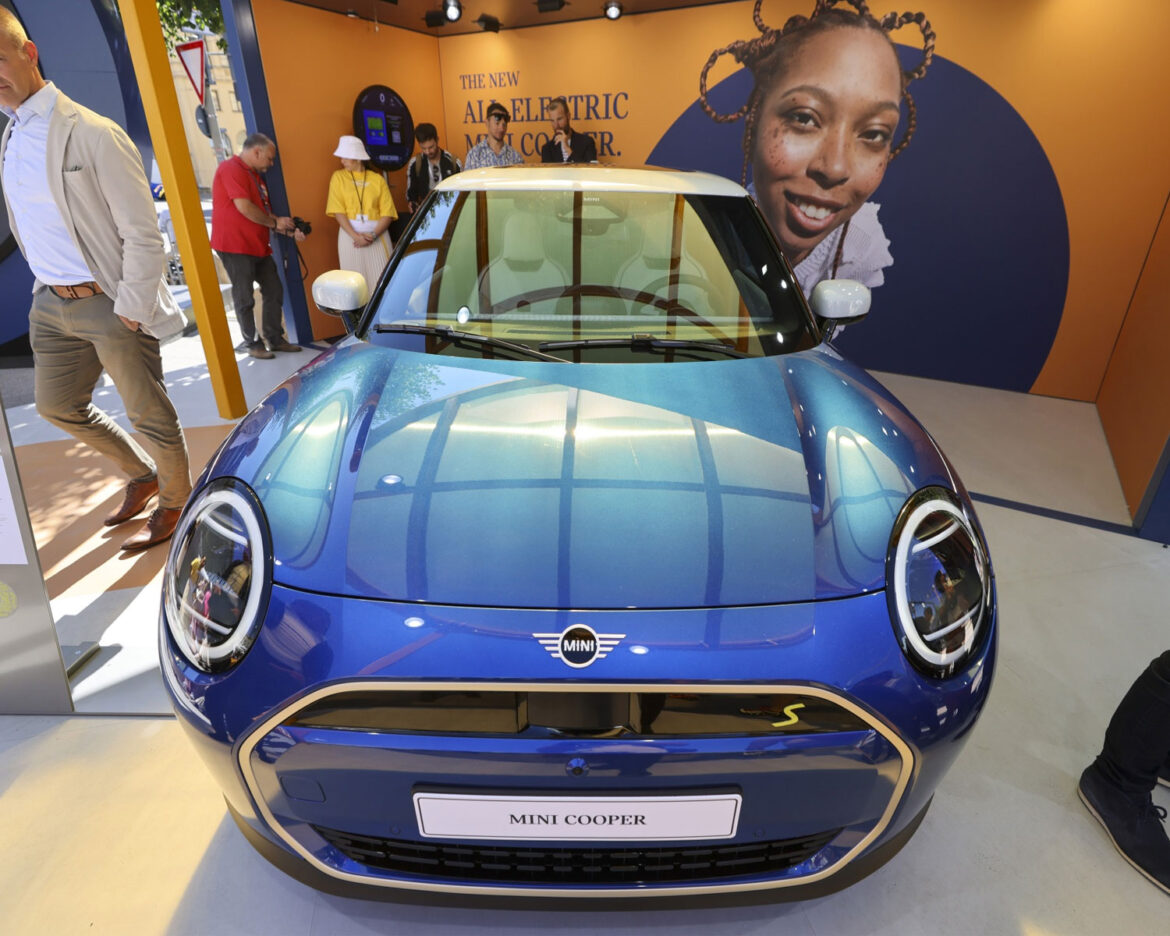BMW has declared its commitment to invest a staggering £600 million (approximately $750 million) in its British manufacturing plants. The investment is aimed at transforming its iconic Mini brand into an all-electric offering by the year 2030, marking a significant stride towards sustainable mobility.
BMW’s decision comes as a breath of fresh air for the British car industry, which has faced years of uncertainty due to Brexit-related challenges. The move underscores the company’s dedication to the UK as a strategic hub for electric vehicle (EV) production and innovation.
Starting in 2026, BMW will manufacture two electric models at its Mini plant located in Oxford. These models include the beloved Mini Cooper 3-door and the compact crossover Mini Aceman. Notably, the Oxford plant will exclusively produce electric vehicles starting in 2030, aligning with the global shift towards EVs. BMW’s production chief, Milan Nedeljkovic, revealed that a significant portion of these electric Minis will be destined for international markets, further boosting the UK’s export potential.
While discussing the company’s vision, Nedeljkovic mentioned BMW’s intention to source batteries for the Oxford-made electric models from European suppliers. However, he did not specify whether these batteries would be produced in the UK, emphasizing that the decision hinges on market dynamics and supplier attractiveness.
Simultaneously, BMW is set to manufacture the same two electric Mini models in China, with exports expected to commence in 2024, enhancing the brand’s global reach.
British Business Minister Kemi Badenoch expressed optimism about the development, stating, “We want auto manufacturing not just to stay in the UK but to be the best in the world, and this is part of that story.” Badenoch refrained from commenting on the reported £75 million subsidy that BMW may receive for Mini production.
The investment will also extend to BMW’s Swindon plant, which produces components for Mini vehicles. Regarding the engine plant in Hams Hall, near Birmingham, Nedeljkovic indicated that it was too early to determine its fate.
The Mini brand, known for its small, agile, and affordable vehicles, has been a part of automotive history since its debut in 1959. BMW revived the brand in 2001, and despite uncertainties about its future in Britain, the company’s recent announcement reinforces its long-term commitment to the UK as a pivotal location for electric vehicle production and innovation.



